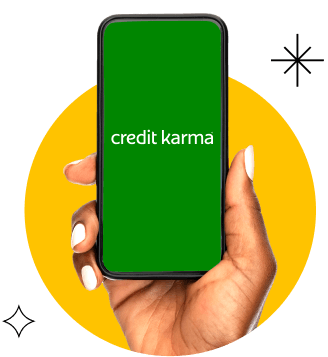Debt Repayment Calculator
Editorial Note: Intuit Credit Karma receives compensation from third-party advertisers, but that doesn’t affect our editors’ opinions. Our third-party advertisers don’t review, approve or endorse our editorial content. Information about financial products not offered on Credit Karma is collected independently. Our content is accurate to the best of our knowledge when posted.
How to use Credit Karma’s debt repayment calculator
If you’re trying to get out of debt, Credit Karma’s debt repayment calculator can help you figure out how long it could take.
Our calculator can help you estimate when you’ll pay off your credit card debt or other debt — such as auto loans, student loans or personal loans — and how much you’ll need to pay each month, based on how much you owe and your interest rate. You’ll also be able to see how much principal versus interest you’ll pay over the lifetime of the debt.
Of course, it’s important to keep in mind that these are only estimates based on the info you provide. This debt payoff calculator can help give you a sense of timing and monthly payments as you put together a repayment plan, but it doesn’t consider other factors — such as your card’s annual fee (if it has one), late-payment fees or any other fees you might incur. It also assumes you won’t use the card to make any new purchases.
Here are some details on the information you’ll need to use this debt calculator.
- How to use Credit Karma’s debt repayment calculator
- How long does it take to pay off debt?
- How do you calculate interest on a credit card?
- How do you calculate a credit card payment?
- How can I pay off large amounts of debt fast?
Balance owed
Enter the amount of debt you’re trying to pay off. For example, if you’re paying off credit card debt, you can usually find the balance by logging into your credit card account or looking at your most recent billing statement.
If you’re carrying a balance on multiple credit cards, and you’re planning to consolidate those balances on to one card, you could list the total combined balances here. But if you plan to pay the cards off separately, run a calculation for each card separately because they may have different interest rates.
Estimated interest rate
The interest rate is the amount you’ll pay to borrow money, expressed as a percentage. The interest rate on a loan is different from the annual percentage rate, or APR, which includes the amount you pay to borrow as well as any fees. On a credit card, the APR is the interest rate expressed as a yearly rate. Entering an estimated APR in the calculator instead of an interest rate will help provide a more accurate estimate of your monthly payment.
Pay attention to whether your credit card charges different interest rates for purchases, balance transfers and cash advances. If that’s the case, you may be able to refer to your most recent credit card statement to see which rate most of your balance is being charged. If you have two large balances on your card that have different interest rates, you might want to run those balances through the calculator separately.
It’s also important to keep in mind that if you make a late credit card payment, you might get hit with a penalty APR, which could unexpectedly increase your interest charges.
You can usually find your credit card APR by logging into your account and searching for the terms and conditions, cardmember agreement or a recent billing statement. If you have a loan, the APR should be stated in your loan documents.
Expected monthly payment
Whether you plan to make your credit card’s minimum payment or think you can afford to pay a little more each month, enter that amount here to find out how long it could take you to get out of debt. If you’re more concerned with repaying your debt within a certain timeframe of number of payments, keep this field blank.
Desired months to pay off
Enter the length of time (in months) that you’d like to repay your debt. For example, if you want to pay off your credit card debt in the next year, enter “12 months” in this field to estimate how much you need to pay each month to hit that goal.
How long does it take to pay off debt?
Here are some common debt amounts at a glance with the time it would take to pay them off using the averaged credit card interest rate of 21.56%. They were calculated using the debt repayment calculator above, which can give more specific results based on your unique situation.
Paying $500 a month
| Amount | Time to Pay Off | Total Interest |
|---|---|---|
| $5,000 | 12 months | $602.96 |
| $10,000 | 26 months | $2,604.82 |
| $20,000 | 72 months | $15,806.49 |
Paying $1000 a month
| Amount | Time to Pay Off | Total Interest |
|---|---|---|
| $5,000 | 6 months | $319.08 |
| $10,000 | 12 months | $1,205.93 |
| $20,000 | 26 months | $5,209.65 |
How do you calculate interest on a credit card?
To calculate your interest charges, you need to figure out what your APR is, how much your average daily balance is, and how many days are in your billing cycle. You should be able to find most of this information by logging into your account.
- Divide your APR by 365 (the number of days in a year) to get your daily periodic rate.
- Multiply that number by your average daily balance. Your average daily balance is your total balance divided by the number of days in your billing cycle.
- Multiply your daily periodic rate by the number of days in your billing cycle to get your total interest charges for the billing cycle.
If you’re carrying a credit card balance, you’ll likely be charged interest. Credit card companies may differ in the time frame they give you to pay for new purchases before they charge interest, though they typically give you about a month to do so.
How do you calculate a credit card payment?
Your credit card issuer will require you to make the minimum payment each month. Whileeach issuer may have a slightly different policy, the common practice is to charge the greater of a certain amount (say $25 to $35), or …
- 1% of your current balance, plus
- Any new interest charges, plus
- Any late fees or past due amounts if you previously missed a payment
You may also choose to pay your statement balance or current balance. The statement balance is your entire balance as measured at the end of your last billing period. After you receive your credit card bill, you usually have a few weeks to pay before it’s due. During this time, any additional purchases you make will be added to your current outstanding balance, which is the total amount you owe right now.
You can avoid interest charges by paying off either the statement balance or current balance by the due date.
How can I pay off large amounts of debt fast?
Consider these strategies and financial products to help you get out of credit card debt or other types of debt.
Snowball method
With the debt snowball method, you start by knocking out your lowest debt balance while making the minimum monthly payment on everything else. After you pay off that first debt, you put the money you were paying on it toward your next smallest debt. If you repeat this process, you’ll start gaining momentum like a snowball.
Paying off your smaller debts more quickly provides a little extra motivation. But the downside is that you might pay more in interest charges because you’re prioritizing the size of the balance over the APR.
Avalanche method
The debt avalanche method, on the other hand, focuses on paying off your debt with the highest interest rate first. This way, you’ll reduce the total amount of interest you pay on your debt over the long term. But you might not notice your progress as quickly, especially if your higher-interest-rate debt consists of your larger balances.
Balance transfer card
You may find it simpler to consolidate your credit card debt onto one card with a balance transfer credit card. Not only is it easier to focus on one payment, but you might be able to negotiate a lower interest rate to help you save money.
Some credit cards have a low promotional interest rate on balance transfers. This could be ideal for people with good or excellent credit who qualify for the card and expect to pay off their balance within the intro APR period.
Personal loan
If you need more time to pay off your debt, consolidating your credit card debt into a personal loan may offer lower interest rates over a longer period of time. Keep in mind that you’ll need good to excellent credit scores to qualify for the best loan rates and terms. And the longer you stretch out your personal loan term, the more interest you’ll pay on your loan. If you decide a personal loan is your best option for paying off your debt, be sure to shop around and compare loan offers to find the best option for your financial situation.
Credit counseling
If the options above don’t feel possible in your current situation, credit counseling with a credit counselor can help you with your budget, money management, debt management and credit. After a thorough review of your finances, a counselor works with you to come up with a personalized plan to help you overcome your financial challenges. Credit counseling services are typically offered by nonprofit organizations at no cost — but that’s not always the case, so be sure to check before you work with a counselor.



